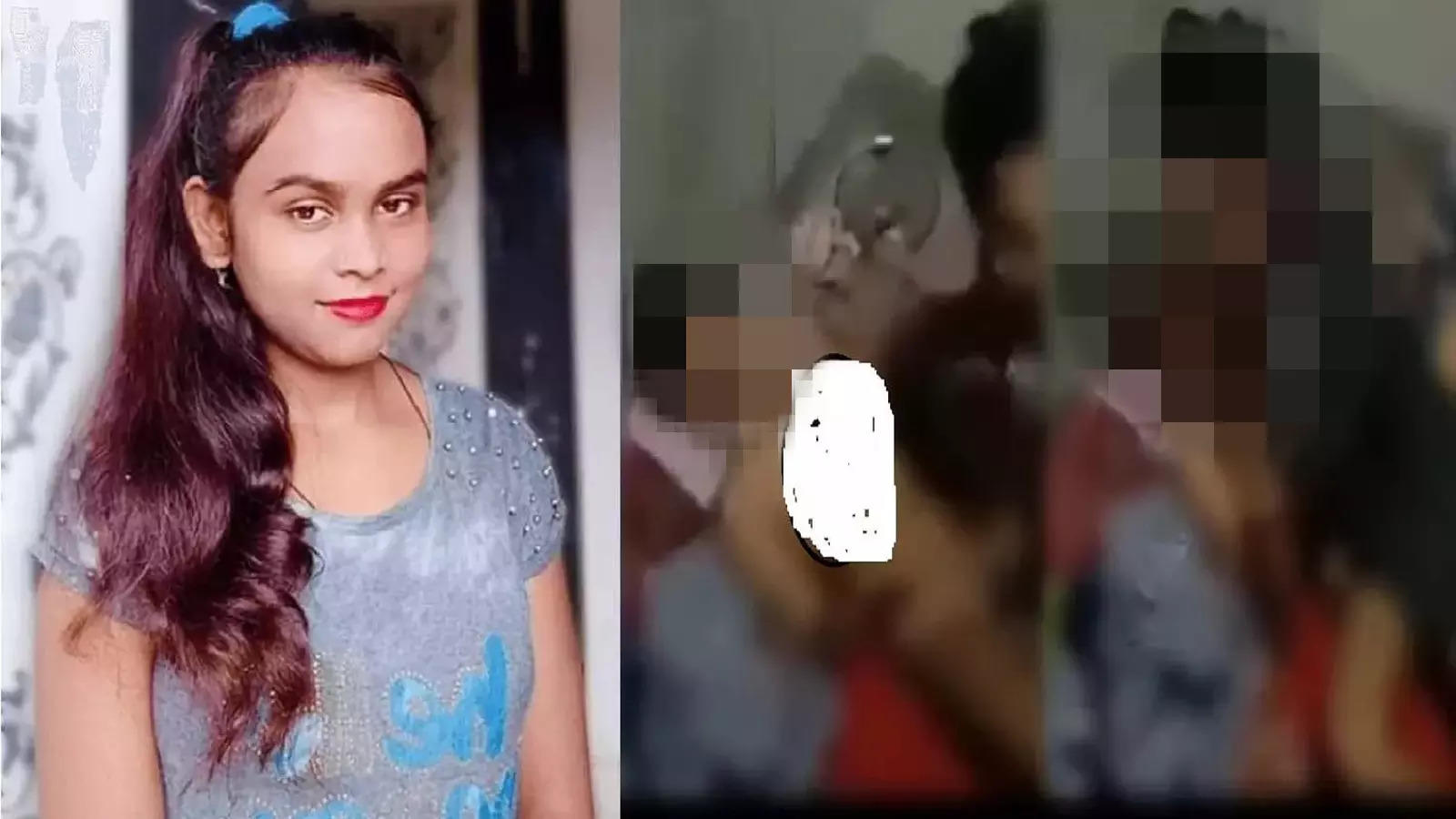India's Viral MMS Scandals: Privacy, Consent, And The Digital Age
In an age where digital footprints are easily etched and amplified, does the ease of sharing information truly empower us, or does it lay bare vulnerabilities we're only beginning to understand? The proliferation of "viral MMS" scandals in India unequivocally reveals a disturbing erosion of privacy, demanding urgent scrutiny and proactive solutions.
The digital landscape in India has, in recent times, been marred by a series of incidents that highlight the dark underbelly of the internet. One such incident, which sent shockwaves through the nation, involved a student from Chandigarh University in Mohali. Arrested on a Sunday, following a massive public outcry, the student stood accused of leaking objectionable videos of female students from a private university. This event serves as a stark reminder of the potential dangers lurking in the digital sphere and the need for constant vigilance.
The repercussions of such incidents often extend far beyond the immediate victims. The emotional and psychological toll can be immense, leading to trauma, social stigma, and a profound sense of violation. The university, in this case, was swiftly shut down for a week in response to the widespread protests, underscoring the gravity of the situation and the importance of addressing the concerns of the student body. The accused, allegedly shared videos of other female students bathing with her boyfriend, who is a resident of Shimla, which further aggravated the situation.
- Movierulz Your Guide To Telugu Tamil More Movies 2025
- Bollywood More Where To Watch Download Movies Today
The incident at Chandigarh University is unfortunately not an isolated one. The digital age, while offering unparalleled opportunities for connection and information sharing, has also created avenues for the exploitation and misuse of personal information. Several actors and celebrities have found themselves embroiled in controversies when their private MMS videos were leaked online. These leaks, often shared without consent, have far-reaching consequences, including reputational damage, emotional distress, and legal repercussions.
The focus of public attention has often shifted towards the individuals caught in the crosshairs of such scandals. Consider Anjali Arora, the social media sensation who gained prominence through the reality show 'Lock Upp' and who first shot to fame with "Kachcha Badam". Her experience, including legal action against news portals and YouTube channels for sharing a morphed MMS video of hers that went viral in August 2022, highlights the complexities of navigating the digital realm.
| Category | Details |
|---|---|
| Name | Anjali Arora |
| Known for | Social Media Influencer, Reality TV Star (Lock Upp), Kachcha Badam fame |
| Controversies | Morphed MMS video circulation, legal action against news portals. |
| Notable Work | Lock Upp |
| Social Media Presence | Highly active across various platforms including Instagram, and YouTube. |
| Legal Action | Filed legal cases against news portals and YouTube channels regarding the spread of morphed MMS video. |
| Associated With | "Kachcha Badam" trend on social media. |
| Reference | India Today |
The recent case involving Tiktok star Minahil Malik serves as another instance of how easily one can be caught in the web of such controversies. The constant threat of having one's private moments exposed online is a source of significant anxiety for many, especially public figures who rely on their image for their livelihoods.
- Hdhub4u Your Guide To Movie Downloads Is It Safe Legal
- Vegamovies Free Movies Web Series Find Latest Download Now
The media's role in covering such incidents is another aspect that deserves attention. Many news outlets offer a comprehensive coverage, which is often sensationalized, with headlines, live updates, and special reports. Websites like oneindia.com and dna india.com provide extensive coverage on such topics, often competing to be the first to break the news. Similarly, financial news platforms like the economic times also offer a perspective, analyzing the economic implications of such content.
The rapid spread of information via social media and messaging apps, often without regard for privacy or consent, has further exacerbated the problem. The term "viral MMS" has become a ubiquitous one, referring to multimedia messages that spread quickly across these platforms. These clips frequently involve private moments, explicit content, or controversial situations, and are shared without the consent of the individuals featured.
The legal implications of these incidents are significant. The unauthorized sharing of intimate images and videos can lead to criminal charges, including invasion of privacy, harassment, and even stalking. The legal system must adapt to the evolving nature of digital crimes to ensure that victims receive the justice they deserve. Laws and regulations around data protection and digital privacy must be strengthened to prevent such incidents from happening in the first place.
The case of Sona Dey, a social media influencer, exemplifies the potential damage caused by the circulation of unverified information. Dey denied any involvement in an alleged MMS video, calling it an edited fabrication intended to defame her. This highlights the importance of verifying information before sharing it and the devastating consequences of false accusations.
The spread of viral MMS content in India is a complex issue with deep roots in cultural and technological factors. The culture of voyeurism and the ease with which content can be created and shared on social media have contributed to the proliferation of these scandals. The use of mobile messaging platforms has made it even easier to share such content quickly and widely. Addressing this issue requires a multi-pronged approach, including raising awareness about the risks, promoting responsible online behavior, and strengthening legal safeguards.
Consider the incident where a student was accused of leaking the private moments of fellow students at Chandigarh University; the case took a turn for the worse. The lawyer of the accused revealed that not one but two vulgar videos of girls had come to light, further intensifying the situation.
The cultural impact of these scandals is significant. They shape digital communication and influence social discourse, often leading to a decline in trust and a fear of being exposed online. The economic impact is also noteworthy, with individuals and businesses potentially suffering reputational damage and financial losses. Understanding the factors that drive the popularity of viral MMS content is crucial for developing effective strategies to curb this invasive practice.
The South Indian actress Trisha Krishnan's experience provides another example of how private images can be exploited. Photos and videos of the actress hugging and kissing, which appeared to be from her modeling days, caused shock and controversy. This highlights the vulnerability of public figures and the need for greater respect for their privacy.
The rise of such scandals has sparked a nationwide debate on privacy and consent. The urgency of stricter laws to protect individuals from invasive acts is paramount. The need for greater awareness of the dangers of digital voyeurism is also evident. Everyone should know how to protect their digital footprints and the importance of respecting others' privacy in the online world.
The unfortunate incident at Chandigarh University, for instance, highlights the dire need for vigilance. The Punjab higher education minister ordered a thorough probe into the matter, and this is the first step to ensure accountability and prevent similar incidents from happening again. The initial reports suggested only one video was involved, but the situation developed and showed the complexity of these events, underscoring the importance of a proper investigation.
In light of the recent surge in MMS leaks, we can delve into the recent surge of MMS leaks, exploring the impact on victims, legal implications, and the urgent need for stricter laws to protect individuals from such invasive acts. An Indian viral MMS refers to a multimedia message (usually a video or image) that spreads rapidly across social media platforms, messaging apps, and other digital channels.
The digital age has transformed the way we communicate and share information. While it offers many benefits, it has also created new challenges. The prevalence of viral MMS scandals in India is a disturbing trend, requiring urgent attention and action. By understanding the risks, staying informed about the laws, and taking preventive measures, individuals can protect themselves and contribute to a safer digital environment. It's a collective effort, and we must all be part of the solution.



Detail Author:
- Name : Dr. Eldred Gislason MD
- Username : dagmar.vandervort
- Email : jarred.marquardt@gmail.com
- Birthdate : 1984-04-27
- Address : 147 Alberto Land West Frida, NE 42222
- Phone : 703-298-0499
- Company : Walker and Sons
- Job : Radio and Television Announcer
- Bio : Et ratione sunt consequuntur harum occaecati. Odit voluptas eligendi et excepturi eveniet iusto sequi. Ipsam praesentium omnis qui. Repellendus nisi sit esse quo.
Socials
twitter:
- url : https://twitter.com/eliane_bernhard
- username : eliane_bernhard
- bio : Quam est quas totam minima. Ut sint exercitationem exercitationem reprehenderit et. Aut modi qui nemo odit aut. Fugiat aut aut cupiditate.
- followers : 3975
- following : 2290
instagram:
- url : https://instagram.com/bernharde
- username : bernharde
- bio : Deserunt perspiciatis repellendus debitis. Corporis molestias omnis quod dolore sed optio.
- followers : 3435
- following : 658
linkedin:
- url : https://linkedin.com/in/elianebernhard
- username : elianebernhard
- bio : Sit hic nulla deserunt sed.
- followers : 132
- following : 1830